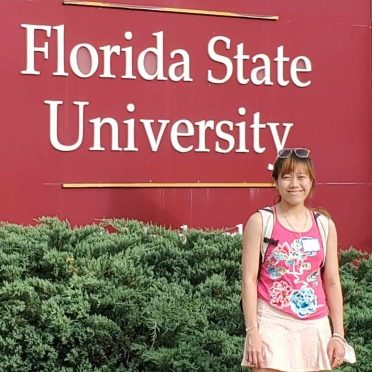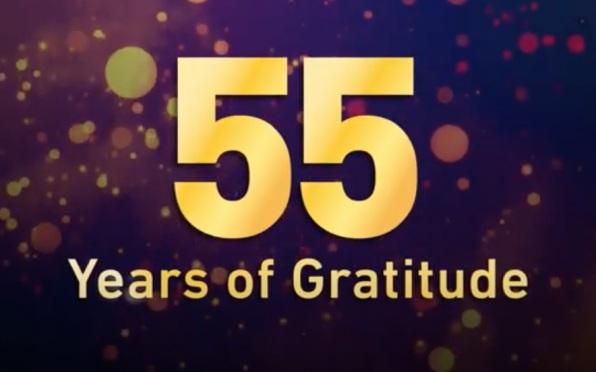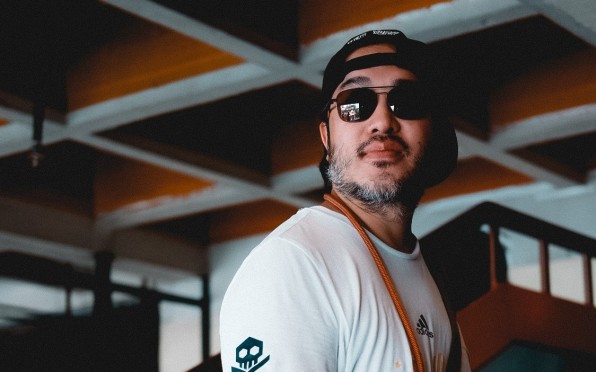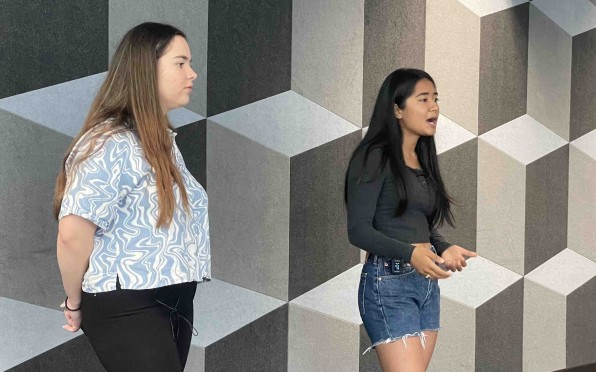Ankit Panda ’08
Ankit is now Stanton Senior Fellow, Nuclear Policy Program at Carnegie Endowment for International Peace and a widely published writer as well as host of the Asia Geopolitics podcast at the Global.
Although originally from India, Ankit lived in Belgium, France, and Jordan before moving to Malaysia for high school. He says the time in Malaysia strongly influenced his interest in the Asia-Pacific region. His ISKL teachers were also influential, noting that Grant Venables (HS English) and Richard Martin (HS History) were early influences for him as a writer and thinker.
Ankit caught up with Lynette MacDonald, ISKL’s Director of Development and Alumni Engagement, shortly after the release of his book “Kim Jong Un and the Bomb”.
LM – I see that you studied Public and International Relations at Princeton, and you seem to have moved about and gathered experience, until now you are quite specialised on defence and nuclear policy. Please explain your journey since university and how your interest in defence and nuclear policy developed. Was it influenced by your time in SE Asia?
I’ve always been interested in international and intercultural exchange—something that was definitely influenced by how I grew up. My interest in defense and nuclear policy probably finds its origins reasonably early in life – I was a kid living in New Delhi when India tested a nuclear weapon, for instance – but it’s something I developed mostly during and after college, where I studied these issues in more depth.
My interest in the Asia-Pacific region, however, was very strongly influenced by time in Malaysia. Not only do I remain quite interested in the country, but in the Southeast Asian region as a whole.

LM – Tell us about your position at the Carnegie Endowment for International Peace. What sort of research and work does it involve?
Carnegie is a new professional home for me. I’ll be continuing a lot of my work on nuclear weapons and security issues around the Asia-Pacific. Currently, a lot of my work focuses on U.S. alliances in Asia, the proliferation of missile technology, and North Korea’s nuclear program.
LM – Let’s talk about North Korea. Have you spent time there and what are your key observations of Kim Jong Un’s leadership?
I haven’t spent time in North Korea. The book is primarily concerned with North Korea’s breakout as a nuclear weapons power and focuses mostly on the nuclear issue; I’m certainly not a Koreanist.
Kim Jong Un remains determined to retain possession of his nuclear weapons and, under his tenure, North Korea’s capabilities have improved and his grown numerically. The longer we wait to arrive at a tenable arrangement to limit North Korea’s arsenal, the more leverage North Korea will enjoy. Unlike in the 1990s, the complexity of capping and rolling back North Korea’s arsenal has grown quite a bit.
LM – How challenging is it to gather information and perspectives on a country like North Korea and its leader? Both are renowned for secrecy.
A lot of my research is enabled by technology. For instance, we live in a time where it’s possible to get daily satellite imagery of most sites of interest around the world. Apart from this, researchers working on North Korea rely quite a bit on images, video, and text that the country puts out itself—bearing in mind that these are, of course, released for a reason. Separately, I also spoke to knowledgeable officials in the United States and collaborated with others to put together a picture of North Korea’s program.
LM – Your expertise extends to the whole Asia-Pacific region. For any other alumni or ISKL students interested in writing and international affairs, what advice do you have about building that body of knowledge and connections? (I note you write for a variety of news sources – how did you build your portfolio and reputation?)
For any writer, writing needs to be a habit. My process tends to involve writing first—allowing that messy, sometimes incoherent stream of consciousness to let loose—and then editing later. The more you write, the better you get it, and the easier it gets. For journalists, researchers, and academics, of course, there is the added component of expertise: as long as you’re fundamentally specialized and knowledgeable about something other people care about, there will be opportunities.
LM – From your biography: Panda was a Korea Society Kim Koo Fellow, a German Marshall Fund Young
Strategist, an International Institute for Strategic Studies (IISS) Shangri-La Dialogue Young Leader, and a Carnegie Council on Ethics in International Affairs New Leader. What opportunities are there for young people to gain experience in diplomacy and international affairs and how competitive are the programs? Again, what advice do you have for others hoping to follow your path?
My perspective is somewhat limited to the American context here, but I find that there are quite a number of programs geared toward young professionals and new college graduates that allow a good degree of insight into what it’s like to work in international affairs. These do tend to be quite competitive, but it can help to apply widely to a range of programs.
LM – You are now Editor-at-Large at The Diplomat. What role do you believe publications like The Diplomat are able to play in a world rife with “fake news”?
I’ve been very proud of the work we’ve done at The Diplomat, where I’ve been affiliated for more than seven years now. The online information space is a mess, as you note, and I strongly believe there’s still a place for editors who’re able to commission and curate the best coverage for a dedicated audience. We’re able to do that effectively at The Diplomat since we’re quite specialized in what we cover (everything political, economic, and geopolitical in the Asia-Pacific).
LM – Back to ISKL. Were there any teachers who played a particularly significant role in your time at ISKL? Did any influence your future career choices?
I have very fond memories of my teachers at ISKL. Last year, when I returned to campus, I managed to see both Grant Venables (HS English) and Richard Martin (HS History). Both were influential early on for me as a writer and thinker. Other teachers that were around during my time have moved on to other places, but I recall many fondly.
LM – Did your experience in an international school environment give you a taste for your future career?
I’m thinking of opportunities like Model United Nations, CulCon and the various IASAS international events? Were you very active in these?
Absolutely. I was very active in MUN and cultural convention (theater and forensics). I’d say my primary extracurricular pursuits were theater and public speaking. I certainly don’t act for a living today, but those experience have been really helpful as a general life skill. I kept up MUN in college, but I’ll never forget taking charge as secretary-general at IASAS MUN 2007, when KL hosted!
LM – Do you have any favorite ISKL memories to share? What do you miss about ISKL, KL and Malaysia?
I miss the food in Malaysia quite a bit, but what’s handy about living in New York is the tremendous diversity so I can still get my hands on Malaysian food when I want it—even if it’s not quite as good as the authentic KL food court experience. My memories of ISKL are all very positive; I was very happy to see the new and advanced campus during my trip to Malaysia last year, but I’ll miss the old Ampang campus!
LM – You live in New York – were you in the city during the worst of the Covid-19 wave there? How is the city recovering from that trauma? Do you know any other ISKL Alumni there?
At a little more than eight years, New York is the longest I’ve lived anywhere. I was in the city during the worst of the springtime lockdown, but the recovery since has been quite good. New York today is springing back and I hope we’ll keep up the momentum.
I do know at least one ISKL alumni: my wife, Lindsay! We met junior year at ISKL. We don’t know too many other ISKL alumni in the city actively, but New York does have a way of bringing old classmates back into town for meet-ups. Back in 2014, we even hosted a small unofficial alumni gathering where a handful of ISKL alums were in town at the same time.



